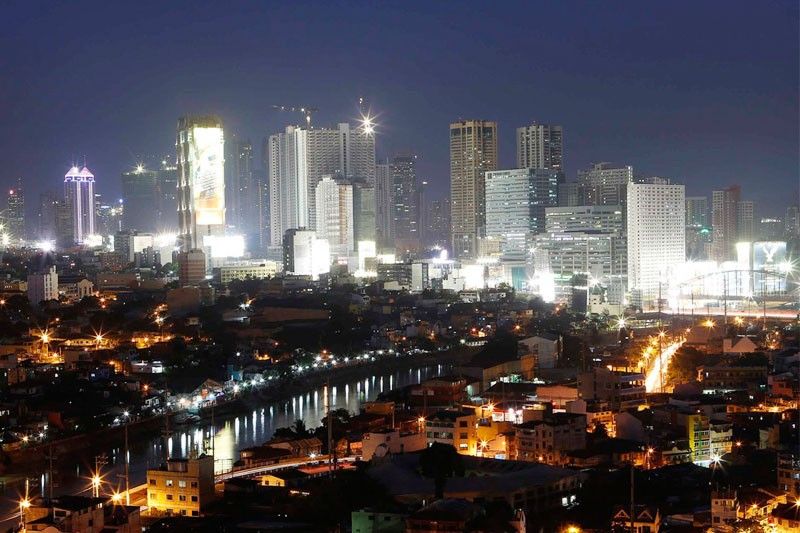Special Report: US, Korea investments falter in 2017 as China, Japan rise

(Last of two parts)
MANILA, Philippines — Security was a major concern for foreign investors in the Philippines last year, with Korean businessmen getting particularly worried, thus resulting in a big drop in their investment pledges.
“We strongly believe in the importance of the rule of law, due process and respect of human rights in all countries, including the Philippines. Security is the issue investors are most concerned with when they decide and choose a place or country. To be frank with you, to date,it shows that the Philippines is not a safe country. Government should tighten gun control. This is not the US, it’s the Philippines,” KCCP’s Lee said.
Last year, reports surfaced that high-ranking police officials were behind the kidnap-slay of Korean businessman Jee Ick-joo at the police headquarters in Camp Crame in October 2016.
The incident prompted the Joint Foreign Chambers (JFC) of the Philippines to issue a statement in February, doubting the ability of local authorities to ensure their safety.
“We promote trade and investment between their respective countries and regions in both directions, but can only succeed in their mission if peace and order and safety can be guaranteed by the authorities. The kidnapping and brutal killing of Jee Ick-joo puts these expected guarantees in question,” the JFC had said.
Foreign business leaders, including Lee, said while prospects for the Philippine business and investment climate remain positive, security issues have weakened the country’s image abroad.
AmCham’s Forbes said the country’s reputation for violence and high murder rate is “unfortunate and contrasts with the reputation of Filipinos as friendly, helpful, smiling people.”
American investment pledges to the Philippines were also a casualty of this bad reputation in 2017.
Forbes, however, pointed out that most American investors his group knows have not experienced security challenges in the Philippines so far.
“The continued news about human rights abuses, a potential authoritarian revolutionary government, and the extension of martial law in Mindanao do not contribute to investor confidence in the Philippines, but rather the opposite,” said Bo Lundqvist, president of Nordic Chamber of Commerce of the Philippines Inc.
Lundqvist said the safety and security situation in the Philippines, just like in any other nation, is important to foreign investors as well as local businesses.
“The resolute handling of the situation in Marawi last year, despite the tragic loss of life, spoke well of the Philippines’ ability to deal with serious threats to its internal security. Despite that, security continues to be an unfortunate concern and obstacle for direct foreign investment. While we do understand the many complexities of the various conflicts that still are ongoing, we believe continued peace talks paired with reforms aimed at eradicating poverty is the only long-term path towards lasting stability,” he said.
Marawi City was besieged by the ISIS-inspired terror group Maute in May 23 last year. This has prompted President Duterte to declare martial law in Mindanao following an armed confrontation between government forces and the Maute group.
The President in October declared Marawi City as liberated from the terrorist influence, marking the start of its rehabilitation.
He, however, requested to extend martial law in Mindanao for one more year or until the end of 2018, which was approved by the Senate and the House of Representatives last month.
“We are also concerned with the extension of martial law in Mindanao despite being cleared two months ago. We fear that this sends the wrong message to the international community and may deter potential investors from not only going into Mindanao but the Philippines as well,” European Chamber of Commerce of the Philippines president Guenter Taus said.
BOI chairman and Trade Secretary Ramon Lopez admitted that the Marawi conflict indeed forced some investors to hold back on their planned investments to the Philippines.
He noted, however, that some also pursued their plans as a reflection of their continuing confidence to the Philippine government and the country’s growing economy.
With the Marawi conflict over, Lopez said he expects the share of foreign investments in BOI’s approved investment pledges to increase this year.
As for Korean and American businessmen, they see change is coming amid the various challenges they are encountering, and they have expressed willingness to continue betting big on the Philippines.
“Actually, we (Korean) are very much interested in this market. It’s really an emerging market and has a bright future. That’s why I mentioned the Philippines need to be more open to foreign investors,” Lee said.
“While we do not see many new US investors, the large number of existing US investors involved in the domestic market and export continue to be a major contributor to the Philippine economy,” Forbes said.
- Latest
- Trending




























